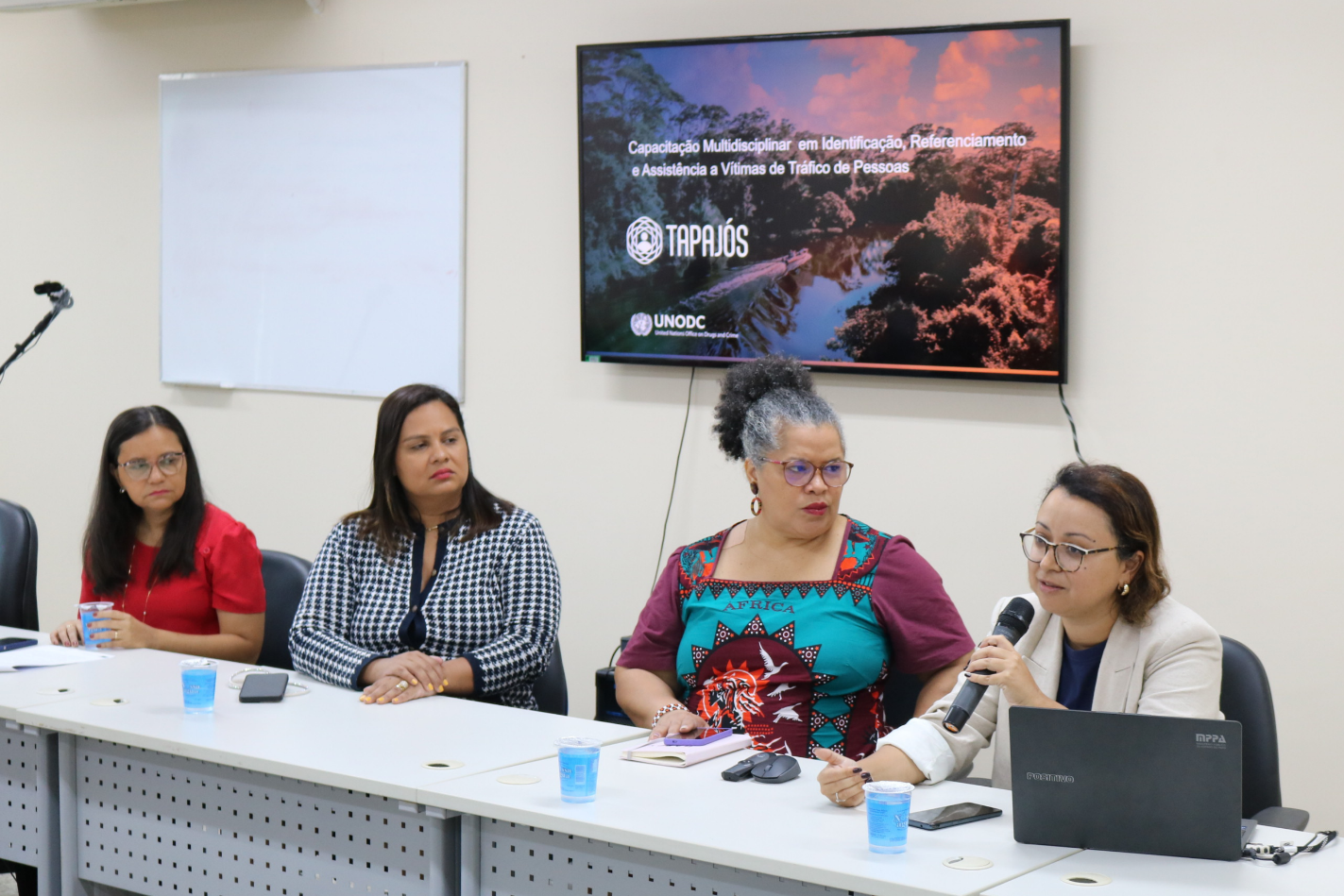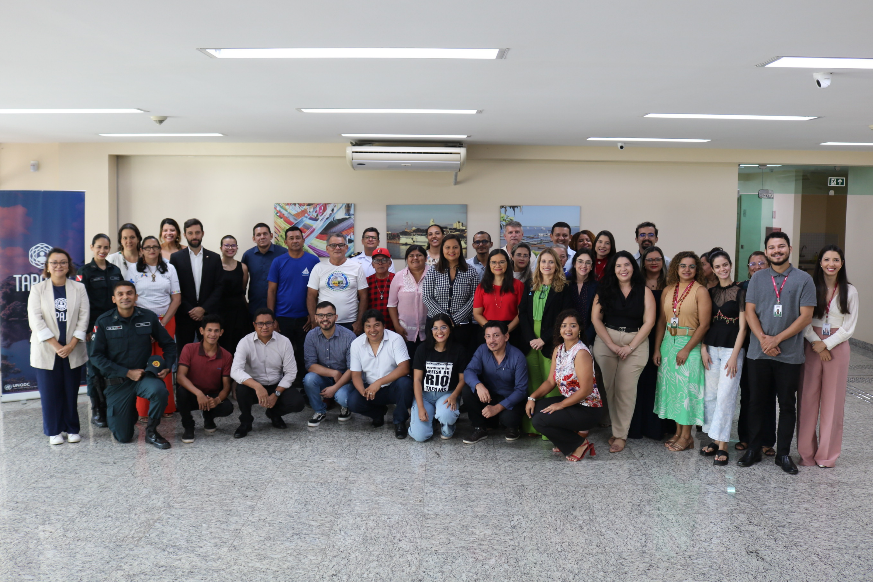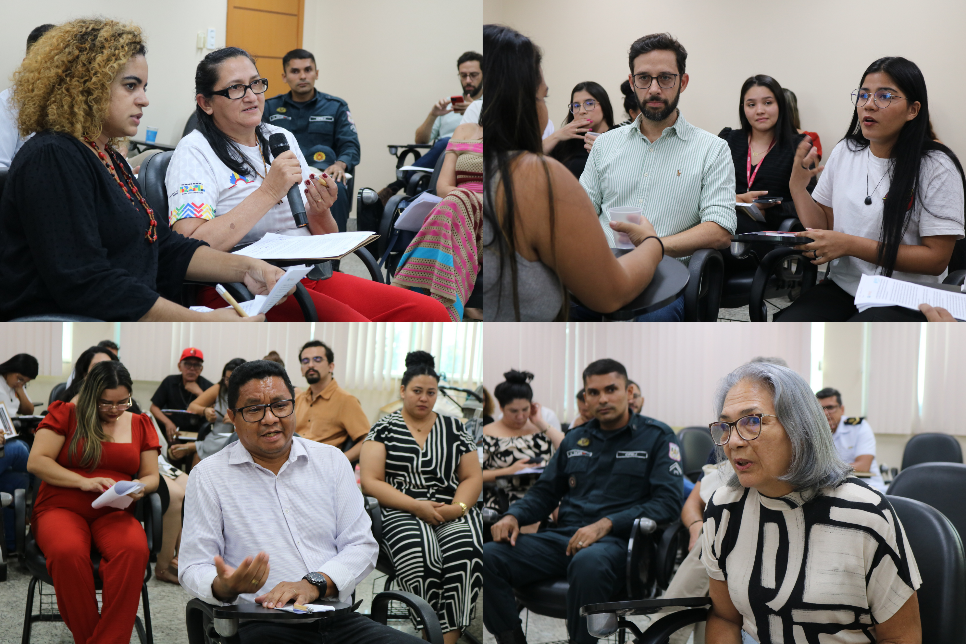Identification and Assistance to Victims of Human Trafficking is the Theme of UNODC Training in Santarém (PA)

Santarém (PA), August 2, 2024– The United Nations Office on Drugs and Crime (UNODC) in Brazil conducted a multidisciplinary training on the identification, referral, and assistance of victims of human trafficking from August 1 to 2. The training was held in Santarém (PA), in the Tapajós River basin.
The training, organized by UNODC through the Tapajós Project in partnership with the State of Pará Prosecutor’s Office (MPPA), included the participation of local and national government institutions, the judiciary, civil society organizations, and the local social assistance network. Additionally, a representative from UNODC Human Trafficking and Migrant Smuggling Section (HTMSS) in Vienna, Austria, was present.
As the first training on human trafficking conducted by UNODC in the region, the two-day program included presentations on the identification of the elements and purposes that constitute the crime, the most common recruitment methods and forms of exploitation, indicators of forced labor, evidence gathering, the role of institutions, victim trauma and mental health, and the identification and prosecution of perpetrators.

Group activities, including case study discussions and simulated interview methodology for the identification of trafficking victims (see below), were also part of the training agenda.
"Human trafficking is a crime that needs to be recognized to be combated, but it is still invisible at various levels. Therefore, it is essential that the network is trained to identify and assist trafficking victims—who often do not recognize themselves as such—and that the State can investigate and holding perpetrators criminally responsible," said Herena Melo, a prosecutor of Western Pará, at the opening of the training.
Also present at the opening session were the municipal secretary of Labor and Social Assistance (Semtras) of Santarém, Celsa Brito Silva; MPPA prosecutor Lilian Cabral; and UNODC monitoring and evaluation (M&E) officer Savia Cordeiro.
The training panelists included Alline Pedra, UNODC crime prevention and criminal justice officer in Vienna; Eduardo Serra, Labor Prosecutor (MPT); Andreia Minduca, executive secretary of the National Commission for the Eradication of Forced Labor (Conatrae); José Weyne, labor inspector; Graziela Sereno, psychologist and member of the Human Rights Commission of the Legislative Assembly of Rio de Janeiro (Alerj); and Francisco Alan, lawyer for the Pastoral Land Commission (CPT) and member of the State of Pará’s Commission for the Eradication of Forced Labor (Coetrae-PA).

Simulated Interviews – Part of the training consisted of a simulated interview exercise to identify victims of human trafficking. The activity's methodology was based on a UNODC manual with lessons learned and best practices from similar exercises conducted in other countries that are signatories to the UN Protocol on Trafficking in Persons.
The exercise was divided into two stages. First, participants were exposed to essential theoretical questions to grasp the concept of human trafficking. Then, a scenario based on a real case—of workers rescued from conditions analogous to slavery in a Pará mining site—was distributed to serve as the basis for the victim identification exercise through a simulated interview.
The entire simulation was conducted by the UNODC team and invited experts. The methodology, which also includes simulated investigations and trials as a learning mechanism, will be replicated in future Tapajós Project training sessions and demonstrates UNODC's commitment to bringing innovative methodologies to address human trafficking in a local context—in this case, the Tapajós River basin.
Tapajós Project – TAPAJÓS is a project implemented since 2021 by UNODC Brazil under its mandate to assist countries in the implementation of the UN Protocol on Trafficking in Persons, with funding from the U.S. Department of State’s Office to Monitor and Combat Trafficking in Persons (J-TIP).
The first phase of the project (2021-2023) aimed to calculate the prevalence of human trafficking and forced labor in gold mining areas in the Tapajós River basin in the state of Pará. Based on this evidence, the second phase (2023-26) of the project foresees the implementation of a series of activities and interventions—co-produced with local partners—to prevent and reduce these crimes in the region.
Learn more about UNODC's work on this topic here
![]()
![]()
Saiba mais: Agenda 2030